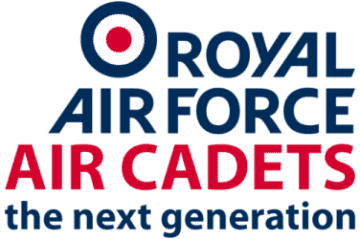Did you know that there are over 20 different apprenticeships that the RAF offer raging from Weapons Technician to Medic? It's National Apprenticeship Week and our personnel will be lifting the lid on what it is like to be an apprentice and train to do these vital roles.
First up, AS1 Catherine on being a Cyberspace Communications Specialist (CCS).
“I wanted to be in the RAF. The apprenticeship just came with it.”
Seeking something more academically challenging after a number of roles in the care sector, Catherine had always been good at IT.
“The age limit for apprentice-type roles I enjoyed seemed to be 24 or they required experience I didn’t have. Having always liked the thought of the RAF as a career, I joined at 30 where there was no requirement for an IT qualification,” said Catherine.
During Phase 2 training, the nine-month classroom-based training programme to be a CCS, comprises many short courses to give a taster of life as a CCS including work on servers, networks and coding. You get examined at the end of each course. At the end of the nine-months, you get your first posting and finish the apprenticeship on-the-job.
Those who do pass receive an Information Communication Technology (ICT) Level 3 vocational qualification.
Was the course a direct benefit?
“It was in terms of providing a foundation of knowledge, but there are so many different and varied roles in IT, that you will need to develop your knowledge further for whichever posting you get. At RAF Cosford I was doing support work with networks (my favourite), others may go out on Ops to install comms such as phones/laptops. Some might be ground support or they could be working on an F35 aircraft!” said Catherine enthusiastically.
What advice would Catherine give to anyone wanting to start an apprenticeship with the RAF?
“If you want to start on an apprenticeship in the RAF, you have got to want to be in the RAF. This is the first priority. The second priority is obtaining an apprenticeship out of that. It is not like any other you would receive on civvie street. From day one you get a good wage, accommodation and other benefits. And you are growing up….quickly. You learn what it takes to become a member of the military.”

For more information on RAF Apprenticeships visit: RAF Recruitment | Apprenticeships | Royal Air Force (mod.uk)

Next up, AS1 Jill on being a Personnel Support Officer.
Why did you apply to go on the RAF Apprenticeship Scheme?
“I was impressed with the many opportunities to progress in further education. I have a degree already and I could do a masters if I wanted to. The scheme is very much sold as if and when you leave the RAF you will have gained skills and qualifications to equip you to find work,” said the AS1.
So, how is the apprenticeship structured?
All candidates at the start of Phase 2 training meet with an affiliated company who run the Apprenticeship Scheme. Different aspects of personnel carried out by HR Centres such as move and track, pay and appraisals are covered during the first few months of the year long course.
The course culminates in a project where candidates are asked to improve a current process within their office and implement the changes. A one-to-one interview is then conducted with an external person who examines the new process, its implications and viability.

“There was an exercise board within our office where personnel could discuss ideas. During Covid this was not possible to do it face-to-face. I created a virtual office board that had the same effect, but online,” said the young AS1.
The Apprenticeship runs in parallel to the candidate’s current role.
At the end of the course a Business Level 3 qualification is awarded (equivalent to 2 ‘A’ Levels). It also gives valuable UCAS points, should you wish to apply for university at a later date.
“My mentor was very supportive during my time on the course. I wanted to pass as much for her as I did for myself,” said the committed AS1.
Would you recommend the Apprenticeship Scheme to others?
“Definitely! It ticks the boxes of what the RAF are aiming to do in terms of giving everyone the chance of having something to take away when they leave the RAF. I think the further education that the RAF provide is something everyone should look into.”

Any advice on starting an Apprenticeship?
“Do something you are passionate about. If you do something as a tick box exercise you will not be giving 100%,” said the AS1 enthusiastically.
For more information on RAF Apprenticeships visit: RAF Recruitment | Apprenticeships | Royal Air Force (mod.uk)
Hot on the heels of AS1 Jill is Cpl Gunson on being a Physical Training Instructor.
So, what does the apprenticeship entail?
Prior to the apprenticeship and before Phase 1 training, a weekend is spent at RAF Cosford where all applicants undergo various fitness tests and a pass/fail grade is given. A face-to-face interview is also conducted which examines leadership skills. Upon passing, there is Phase 2 Physical Education course (6-7 months) which is completed at RAF Cosford.
Candidates are put into the Apprenticeship Scheme where over 18 months all your achievements are recorded via a Workplace Training Package. This includes creating a portfolio of 5 clients – detailing training, nutrition, lifestyle, and a mock business plan. Help is at hand if required.
The Apprenticeship Scheme secures you a Level 3 Personal Training Qualification.
“It’s really good to get Level 3 PT – if you leave the military you are set up to do other things outside in civvie street,” said Cpl Gunson.
During Phase 3 you are required to complete further training in one of a number of disciplines including Parachute Jump Instructor, Exercise Rehabilitation Instructor, SERE Instructor or Force Development Instructor.

What is a typical day in the life of a PT Instructor?
You could be running inductions, conducting and answering question on fitness tests and leading Circuits. There is also involvement in the Directed Reconditioning Training Programme which aims to assist personnel who are unsuccessful in fitness tests.
How do you motivate?
“To spread some happiness and knowledge to another person is my motivating force. I find something that they enjoy….that strikes a chord with them,” said Cpl Gunson.
“Seeing people put in the effort to pass their fitness tests, progress in Circuits and to share my world with them, is a brilliant feeling.”
Any advice on taking the Apprenticeship course?
“Do it! You get a great qualification. Get the work done as early as you can. Do the coursework. Above all have a passion for the job. When you have a group in Circuits the energy you put in is what they are going to give you back,” said the enthusiastic Cpl.

For more information on RAF Apprenticeships visit: RAF Recruitment | Apprenticeships | Royal Air Force (mod.uk)
Now for something a little less physical, Maya on completing a Civil Service Apprenticeship in Business Administration.
After completing ‘A’ Levels Maya sought employment that would allow her to work and gain a valuable qualification at the same time. The Business Administration Level 3 (equivalent to 2 ‘A’ Levels) allowed her to develop transferrable skills that would benefit future roles.
“Starting off at Level 3 would allow me to learn the base knowledge, so that I could choose to develop these skills with a higher-level apprenticeship if I want to. There is such a wide variety of areas you can go into including HR, Finance & Secretariat,” said the Executive Officer.

Support is important in any apprenticeship and personal mentors are assigned to each candidate. “My line manager, team, talent coach and apprenticeship leads have all provided guidance during my apprenticeship, as well as having a network of current apprentices to informally chat to,” said Maya.
Having capacity to study for the apprenticeship is crucial. Typically, the Apprenticeship Scheme requires almost a full day’s commitment, a minimum of 6 hours of your working week; The key is to focus 100% on the apprenticeship work and not get distracted by the day job.
The culmination of the year long course is a project which is graded with a distinction/pass/fail. And it doesn’t stop there! Should you wish to, further qualifications can be studied for to continue your academic journey.
And what advice would you give to anyone considering an apprenticeship? “Go for it!” commented Maya.
“The apprenticeship has made me more confident in my role and has pushed me to take opportunities I wouldn’t usually take. It’s important to choose the topic which is the most interesting to you and relevant to your current job role – apprenticeships require a lot of self-motivation, so you need to feel inspired to complete your work.”

For Maya, the apprenticeship is part of a broader picture;
“For me, having the ability to work close to home, whilst gaining first-hand working experience in a role, and building a pension are a few of the many benefits of being a MOD Civilian.”
For more information of Civil Service Apprenticeship visit: Apprenticeships | Civil Service Careers (civil-service-careers.gov.uk)








